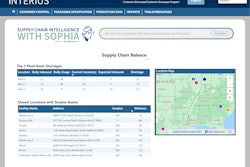
As global food prices rise and reducing food waste remains a top priority, a new study from INFORMS and Management Science reveals how blockchain technology could revolutionize the grocery industry. By increasing transparency in food freshness, blockchain adoption could help retailers slash waste, maximize profits and reshape relationships with suppliers.
“As inflation puts pressure on grocery prices and food waste remains a global crisis, blockchain technology offers a game-changing solution,” says N. Bora Keskin, one of the study’s authors and a professor at Duke University. “By providing real-time transparency on freshness, retailers can make smarter purchasing decisions – but suppliers may need new incentives to stay on board.”
“The use of smart contracts ensures fairness across the supply chain,” adds Chenghuai Li, study co-author, also from Duke University. “Retailers get the freshest products, suppliers get compensated fairly, and ultimately, consumers benefit from better quality and lower waste.”
Key takeaways:
- Grocery retailers can use blockchain-powered data to make smarter inventory decisions that reduce spoilage while improving their bottom line.
- Using real-world data and advanced modeling, the study found that blockchain-enabled freshness tracking is most valuable for perishable goods with stable demand, such as berries, lettuce, fish and beef.
“This isn’t just about technology; it’s about changing the way we handle food,” says Jing-Sheng Song, co-author and professor at Duke University. “Blockchain-powered transparency can make fresh produce supply chains more efficient, more sustainable and more profitable for everyone involved.”




















